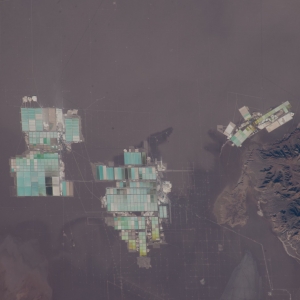The Stream, January 18, 2022: Utah Releases Ambitious Water Plan
YOUR GLOBAL RUNDOWN
- Drought threatens the livelihoods of Cambodian farmers.
- Argentina faces a historic heatwave.
- Microplastics can linger in the world’s riverbeds for up to seven years before being deposited into the ocean, a new study finds.
- Utah’s new plan to conserve water includes lofty and somewhat conflicting objectives.
A tsunami leaves much of the island of Tonga cut off from communication with the rest of the world.
“The full extent of the harm to lives and property is currently unknown. What we do know is that Tonga needs immediate assistance to provide its citizens with fresh drinking water and food.” – Fatafehi Fakafanua, the speaker of the Legislative Assembly of Tonga. Residents on the island nation of Tonga remained unreachable on Monday after a volcanic eruption launched a tsunami and cut off internet connection on the island. Scientists believe the eruption of the Hunga Tonga-Hunga Ha’apai volcano is the largest in three decades, with shock waves traveling thousands of miles. Neighboring countries Australia and New Zealand sent surveillance flights to assess damage, while aid organizations waited to deploy supplies.
In Recent Water News
In Case You Missed It:
HotSpots H2O: In Chile’s Lithium Mines, Climate and Environment Are Dueling Priorities – A battle is brewing over the future of lithium, an essential component of the world’s transition to renewable energy.
Drought Is Threatening The Livelihoods of Cambodian Farmers
Farmers in Cambodia are struggling to grow crops amid ongoing drought. Tonle Sap, Southeast Asia’s largest freshwater lake, has consistently dropped to record low levels during the area’s dry season. Farmers like Sam Vongsay, who typically grows two seasons of rice every year, are struggling to salvage a single harvest. Drought is exacerbating existing issues in the area, like growing demand for land, water diversions and lack of infrastructure.
Today’s Top Water Stories, Told In Numbers
75,000 UTILITY CUSTOMERS
Argentina is facing a historic heatwave amid a years-long drought. The conditions are affecting farmers abilities to grow crops, especially grains, one of the country’s main exports. In Buenos Aires on Friday, more than 75,000 customers did not have electricity. On the same day, the country recorded its highest ever electricity consumption level.
- In Context: HotSpots H2O: Argentina’s Paraná River Drops to 77-Year Low, Resulting in Economic Loss and Wildfires
7 YEARS
A new study discovered that microplastics can linger in rivers for as long as seven years before reaching the ocean. Previous research assumed lightweight microplastics flowed quickly through riverbeds, but a new study in Science Advances found that when surface water mixes with water in a riverbed microplastics that would otherwise float can become trapped. The study marks the first analysis of microplastic accumulation and residence time within freshwater systems.
On the Radar
Utah Gov. Spencer Cox released an ambitious water plan late last week that sets lofty goals for reducing water use and investment in aging water infrastructure. The plan also establishes targets for revitalizing ecologically stressed lakes and watersheds, while also maintaining the state’s agriculture industry and urban growth.
- In Context: Utah’s Water Dilemma
Jane is a Communications Associate for Circle of Blue. She writes The Stream and has covered domestic and international water issues for Circle of Blue. She is a recent graduate of Grand Valley State University, where she studied Multimedia Journalism and Women, Gender and Sexuality Studies. During her time at Grand Valley, she was the host of the Community Service Learning Center podcast Be the Change. Currently based in Grand Rapids, Michigan, Jane enjoys listening to music, reading and spending time outdoors.







Leave a Reply
Want to join the discussion?Feel free to contribute!